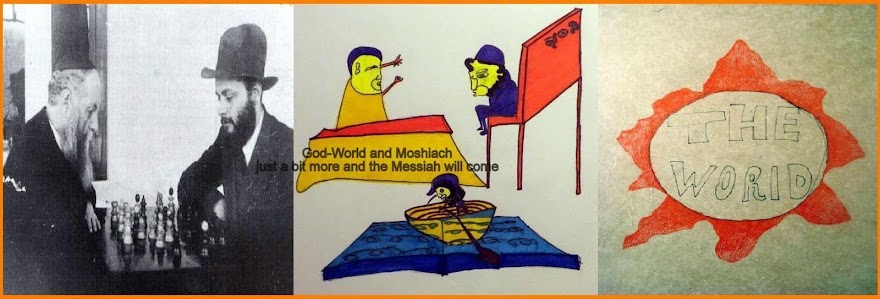שו"ת נזר יצחק
לעלוי נשמת א"מ ר' יצחק הכ"מ בן ר' אליעזר צבי זאב שליט"א
This e-mail is being sent out as a daily halacha l’zchus my father hk”m we would like for the halacha to be learnt לעילוי נשמתו .
The daily inspiration is my own ideas to try to make a connection
between the practical halacha and the abstract concept that the halacha
is portraying of life. (If you have any questions, ideas, or would like
someone to join the e-mail list pls e-mail me at dailyhalacha57@gmail.com).
check out the blog we hope to soon have the entire previous daily Halacha’s uploaded. http://
Question: Is one allowed to listen to chassidishe
niggun in the 3 weeks.
L’Halacha: One is permitted to play chassidishe niggunim at least until Rosh Chodesh Av.
Answer: The Mishna [1]says,
“When the month of Av comes in we are supposed to decrease in simcha.” The Gemara[2]
explains that any activity that brings one joy is forbidden such as
construction and the like.
The halacha[3]
is that from Rosh Chodesh Av until after Tisha Bav it is forbidden to do
activities that involve enjoyment. The
Ramah[4]
adds that the Ashkenazic custom is that starting from the 17th of
Tammuz one should refrain from these activities. As such, music which gives one joy is
forbidden[5].
We find in halacha[6]
that live music (with musical instruments) such as by a wedding, concert etc. is
forbidden. Contemporary poskim[7]
write that the same applies to music on tapes or radio because they provide the
same feeling of excitement and would therefore be under the same prohibition
being that nowadays most forms of entertainment are transmitted through
electrical equipment such as computers.
The Mishna[8]
writes that during levaya ceremonies they would play music to stir the emotions
of the participants. This seems to
suggest that not all forms of music are forbidden when we are supposed to be in
a reduced state of joy.
We also find that l’halacha[9]
a teacher of music is allowed to continue during the 3 weeks since it is to
arouse joy but rather his livelihood.
From this we see that there are 3 categories of music.
1) Music that stirs a happy emotion which makes a person
lively etc.
2) Ordinary music which is not necessarily for the sake of music
such as practicing.
3) Music that evokes strong emotion and produces the
opposite effect of joy.
The question is what is the din regarding listening to
chassidishe niggunim on a tape with music accompaniment[10]?
It could be argued, that since such a form of music helps
one’s Avodas Hashem and Yiras Hashem, it does not have the status of
entertainment and joy. Rather, its focus is to stir very strong emotions and
concentration like when one sings while learning and davening[11]. Since in the days of the 3 weeks, one is
focused on Teshuva and Avodas Hashem, it would seem appropriate to arouse such
stirring of emotions[12].
Furthermore, the possuk says that one has to serve Hashem
with joy[13]. Likewise, many hold that music being played
for a Mitzva during this period is permitted[14]. Therefore, since chassidishe niggunim stirs
one service to Hashem even if it arouses feelings of joy, should be permitted.
Based on the distinction between the din of the 9
days and the minhag of the 3 weeks, there is further reasoning to permit
such kind of music at least until Rosh Chodesh Av[15].
L’Halacha: One is permitted to play chassidishe niggunim at
least until Rosh Chodesh Av.
Daily inspiration:
Music forms a bridge of our sub-conscious mind into consciousness.
The power that lies within stimulates intellectual contemplation and emotional experience
both joyful and somber. Uncontrolled it could produce undesirable and negative effects.
One
difference between the sub-conscious and consciousness is that of the timeless and
time. As such the effects of music is also relative to a moment in time.
[1] תענית כ"ו
[2] שם י"ד: ומגילה ה:
[3] שו"ע סי' תקנ"א:א
[4] שם סעי' ב'
[5] מגן אברהם שם סק"י
[6] שם ועי' בשוע"ר סי' תצ"ג:א
[7] עי' שו"ת שלמת חיים ח"ד סי' כ"א
ושו"ת צי"א חט"ו סי' ל"ג שו"ת אג"מ ח"ב סי'
קלז וח"א סי' קסו ושו"ת יחו"ד ח"ו סי' ל"ד
[8] שבת קנ"א. עי' בשו"ע יו"ד סי'
שד"מ
[9] פרמ"ג בא"א סק"י שם, שו"ת
צי"א שם, מנח"י ח"א סי' קי"א, שו"ת אג"מ ח"ג
סי' פ"ז ועי' בס' הליכות בת ישראל פכ"ד סעי ה
[10] ובלי לווית כלי זמר נר' דמותר לגמרי עי'
שו"ת מנח"י שם ואג"מ שם ושו"ת צי"א שם
[11] עי' שו"ת יחו"ד ח"ו סי' ל"ב
ושו"ת שבט הקהתי ח"א סי' קפ"ט
[12] עי' ס' עבודת ישראל פ' מסעי
[13] דברים כח,מז תהלים ק,ב עי' ס' התניא פ"א
פכ"ו שוע"ר סי' תקכ"ט:י"ב
[14] עי' שו"ת משנ"ה ח"י סי' ק"ט
וס' מעדים וזמנים ח"ח סי' של"ח
[15] עי' כה"ח ס"ק ל"ט ומ"א
